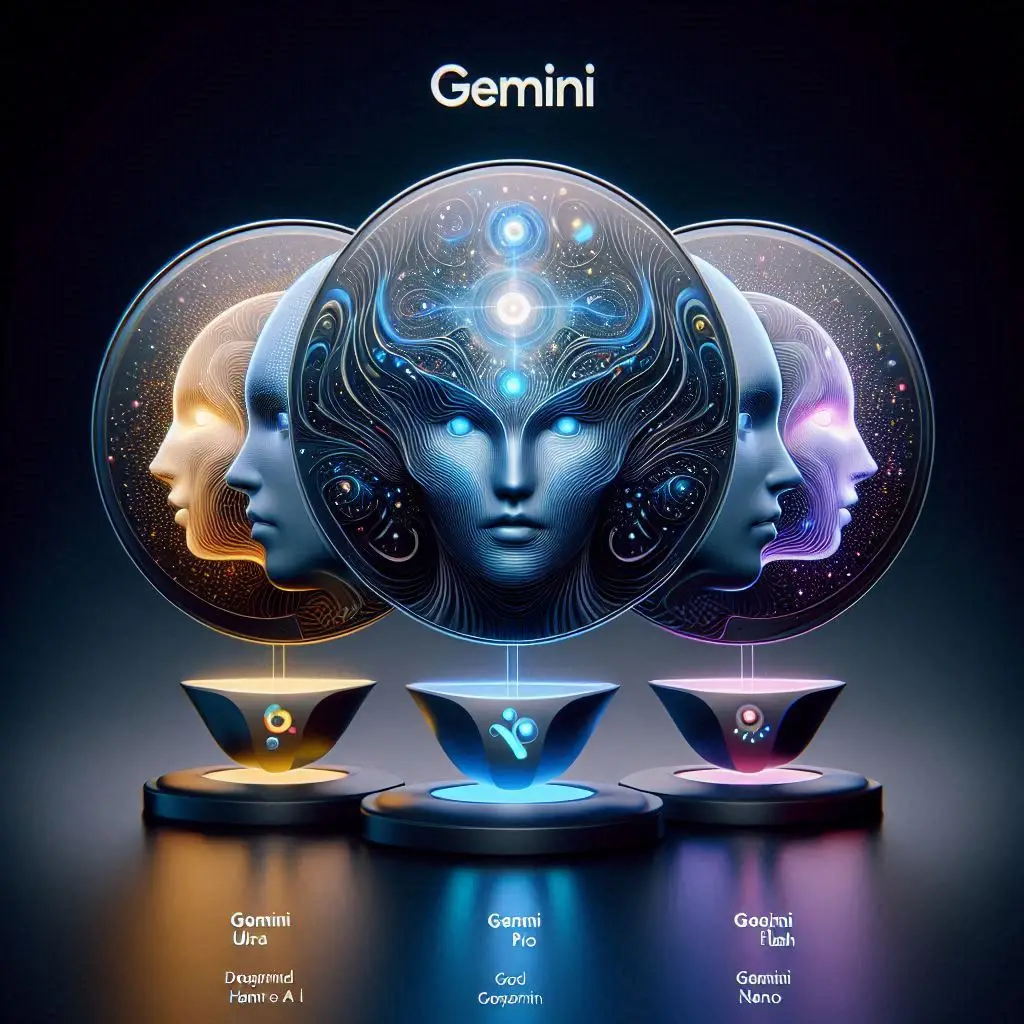Google is making headlines with its new generative AI platform, Gemini, a suite of advanced AI models, apps, and services. Promising to revolutionize the field, Gemini is the latest brainchild of Google’s AI research labs, DeepMind and Google Research. Here's a comprehensive guide to help you understand what Gemini is, how it can be used, and how it stacks up against the competition.
What is Gemini?

Gemini is Google's next-generation family of generative AI models. Developed by DeepMind and Google Research, Gemini comes in four main variants:
Gemini Ultra: The most advanced and powerful model in the Gemini family.
Gemini Pro: A lightweight, more efficient version of Ultra.
Gemini Flash: A faster, streamlined version of Pro.
Gemini Nano: Designed for mobile devices, available in two versions – Nano-1 and the more capable Nano-2.
Unlike previous models such as LaMDA, which were trained exclusively on text data, Gemini models are natively multimodal. They can handle and analyze text, audio, images, and videos, making them versatile and powerful tools for a wide range of applications.
Ethical and Legal Considerations
Gemini Apps vs. Gemini Models
Google’s branding can be confusing, so it's essential to distinguish between Gemini apps and Gemini models. Gemini apps (formerly known as Bard) serve as interfaces to various Gemini models like Ultra and Pro. These apps can be accessed on the web, Android, and iOS devices, integrating seamlessly with other Google services.
Integrating Gemini Across Google Services
Gemini models are gradually being integrated into various Google services, enhancing their functionality. For instance:
Gmail and Docs: Gemini assists with writing emails, summarizing threads, and brainstorming content.
Slides and Sheets: It generates slides and custom images, and organizes data into tables and formulas.
Drive and Meet: Gemini summarizes files and translates captions into multiple languages.
Chrome: It provides an AI writing tool that can draft or rewrite text based on the webpage content.
For most of these features, users need the Google One AI Premium Plan, which costs $20 per month. This plan provides access to Gemini Ultra and other advanced capabilities across Google Workspace apps.
Advanced Features: Gemini Gems and Gemini Live
Gemini offers some innovative features for advanced users:
Gemini Gems: Custom chatbots created from natural language descriptions, which can integrate with Google services like Calendar and Keep.
Gemini Live: An interactive voice chat experience exclusive to Gemini Advanced subscribers, allowing users to have in-depth, real-time conversations with the AI.
Capabilities of Gemini Models
The multimodal nature of Gemini models allows them to perform a variety of tasks, from transcribing speech and captioning images to solving complex problems and generating content. Here’s a breakdown of what each tier can do:
Gemini Ultra
Solves problems step-by-step and identifies mistakes in filled worksheets.
Extracts and synthesizes information from scientific papers to update charts with new data.
Generates images natively, though this feature is not yet fully productized.
Gemini Pro
Excels in reasoning, planning, and understanding.
Processes large amounts of data, including text, video, and audio.
Available via Vertex AI and AI Studio, with features like code execution and fine-tuning for specific contexts.
Gemini Flash
A streamlined version of Pro, ideal for tasks like summarization, chat apps, and data extraction.
Available for general use by mid-July.
Gemini Nano
Designed for mobile devices, enabling features like summarizing recorded conversations and suggesting replies in messaging apps.
Powers features on supported devices like Pixel and Samsung Galaxy phones.
Comparison with OpenAI’s GPT-4
Google claims that Gemini models, particularly Ultra, outperform existing benchmarks, including those set by OpenAI’s GPT-4. However, the differences are often marginal, and the AI industry is rapidly evolving. OpenAI’s GPT-4o and Anthropic’s Claude 3.5 Sonnet are notable competitors, each excelling in different areas.
Pricing
Gemini models are available on a pay-as-you-go basis, with free options imposing usage limits. Here’s a quick overview of the pricing for Gemini models:
Gemini 1.0 Pro: $0.50 per 1 million input tokens, $1.50 per 1 million output tokens.
Gemini 1.5 Pro: $3.05 to $7 per 1 million tokens for input, $10.50 to $21 for output, depending on prompt length.
Gemini 1.5 Flash: $0.35 to $2.10 per 1 million tokens, depending on prompt length.
Future Prospects
Google is reportedly in talks with Apple to bring Gemini to iOS, potentially enhancing iPhone features with generative AI capabilities. This collaboration could further extend Gemini’s reach and usability.
Conclusion
Google’s Gemini represents a significant advancement in the field of generative AI. With its multimodal capabilities and wide range of applications, Gemini is poised to become a key player in the AI landscape. However, potential users should be aware of the ethical and legal considerations and stay informed about ongoing developments to make the most of this powerful technology.









Add a Comment: